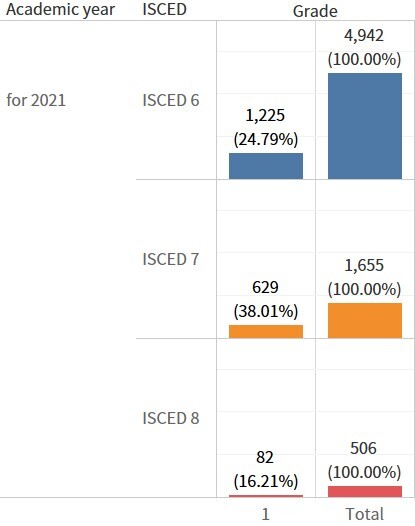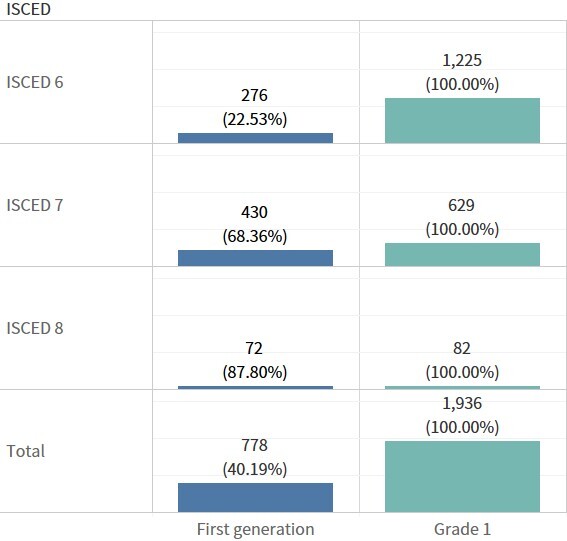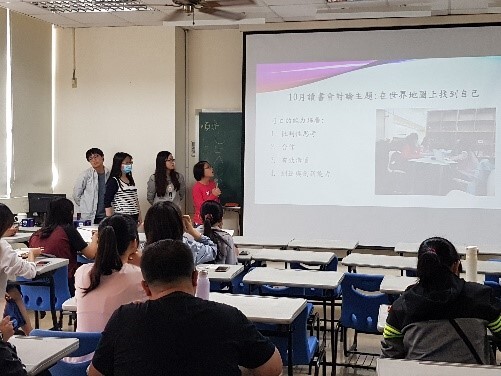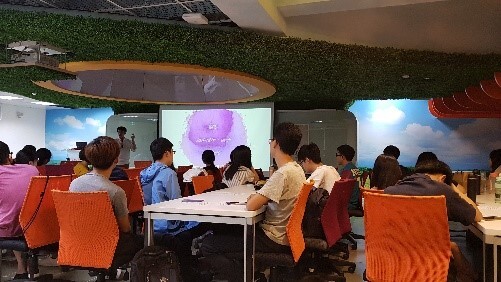SDG10.2.1 Number of students starting a degree
Number of students starting a degree.
Number of students starting an FTE bachelor’s degree in 2021: 1,225; Master’s degree: 629; Doctoral degree: 82.

Number of first-generation students starting a degree
1. Number of first-generation students starting a degree
Among the new students enrolled in the day-time courses in 2021, 778 were first-generation students starting a degree, accounting for 40.19% of the 1,936 students in total.

2. Improving the education guidance mechanism for students who are the first to attend university in three generations
To achieve the goal of equality of opportunity in education, and alleviate the unequal treatment faced by students due to disadvantaged economic or cultural backgrounds, the Higher Education Sprout Project of NCUE provides students “who are the first to attend university in three generations of their families” the opportunity to apply for various kinds of guidance with respect to their studies, lives, psychology, and careers. Since 2018, NCUE has guided more than 250 students who meet the criterion of “being the first to attend university in three generations of their families,” and issued nearly 2 million NTD of guidance rewards. NCUE subsidized 47, 15, and 4 students in the 2019, 2020, and 2021 academic years, respectively, helping them overcome short-term living difficulties by integrating the guidance resources of the university.
2.1 Learning guidance to identify the best students and assist the competent ones: Guided by the needs of students, teachers are responsible for leading and designing customized and comprehensive guidance plans for students. Students who wish to continue their studies are provided with information on the Yang-ying Bachelor’s and Master’s combined degrees; To expand the knowledge and functional learning of students, NCUE has designed diversified learning projects for empowerment that train students using empowerment seminars and workshops such as interdisciplinary programs.
2.2 Life guidance for studying with ease: Students experiencing short-term hardships and economic difficulties are supported by measures such as tuition and miscellaneous fee reductions, as well as accommodation programs. They can also obtain resources such as emergency assistance, campus meal vouchers, scholarships, and grants after going through the guidance process.
2.3 Accompanying and supporting students with psychological counseling: Students in need of psychological counseling can receive individual and group counseling services, as well as participate in diversified mental health promotion activities (including seminars and workshops). The cases of students who need psychological counseling are recorded and tracked, so as to provide them with comprehensive psychological support and assistance, deepening the strategy of “precise counseling” and enhancing students’ resilience.
2.4 Career counseling that facilitates employment: Since 2022, NCUE has organized career development workshops and seminars to provide students in need of career orientation guidance with the relevant guidance resources. For those who need career counseling, we designed individual counseling which helps them to quickly and precisely master job-seeking skills for the future with one-on-one professional counseling.
2.5 Student emergency aid: To support students from economically-disadvantaged families that face emergencies (including students who are the first to attend university in three generations of their families) through hardship, NCUE provides emergency relief funds of approximately 100,000 NTD. https://alumni.ncue.edu.tw/p/405-1017-4685,c1366.php



